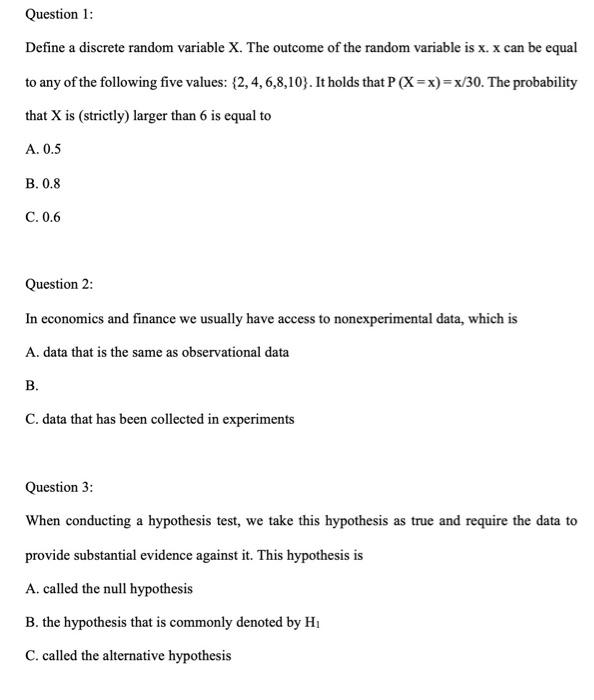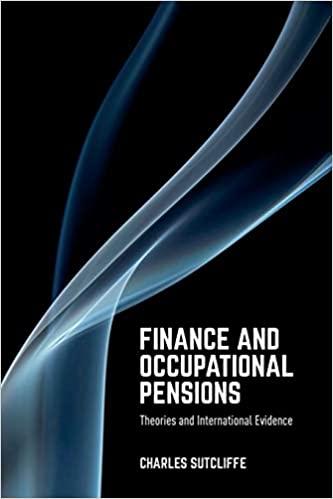Answered step by step
Verified Expert Solution
Question
1 Approved Answer
answer all three questions with explanations Question 1: Define a discrete random variable X. The outcome of the random variable is x.x can be equal
answer all three questions with explanations 
Question 1: Define a discrete random variable X. The outcome of the random variable is x.x can be equal to any of the following five values: {2,4,6,8,10}. It holds that P(X=x)=x/30. The probability that X is (strictly) larger than 6 is equal to A. 0.5 B. 0.8 C. 0.6 Question 2: In economics and finance we usually have access to nonexperimental data, which is A. data that is the same as observational data B. C. data that has been collected in experiments Question 3: When conducting a hypothesis test, we take this hypothesis as true and require the data to provide substantial evidence against it. This hypothesis is A. called the null hypothesis B. the hypothesis that is commonly denoted by H1 C. called the alternative hypothesis 
Step by Step Solution
There are 3 Steps involved in it
Step: 1

Get Instant Access to Expert-Tailored Solutions
See step-by-step solutions with expert insights and AI powered tools for academic success
Step: 2

Step: 3

Ace Your Homework with AI
Get the answers you need in no time with our AI-driven, step-by-step assistance
Get Started


